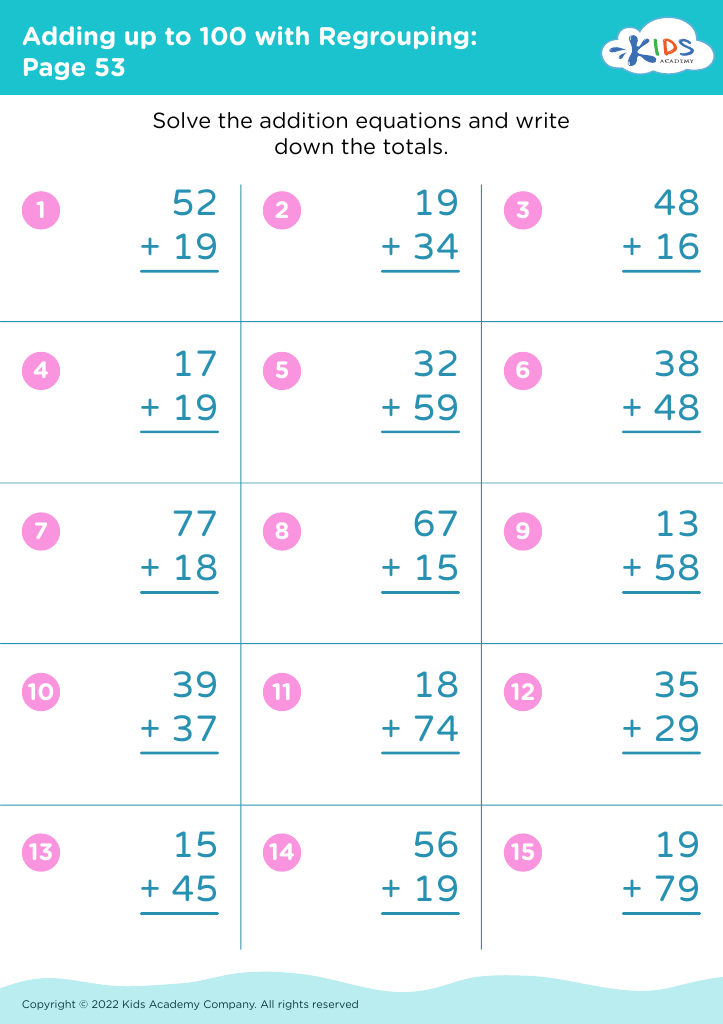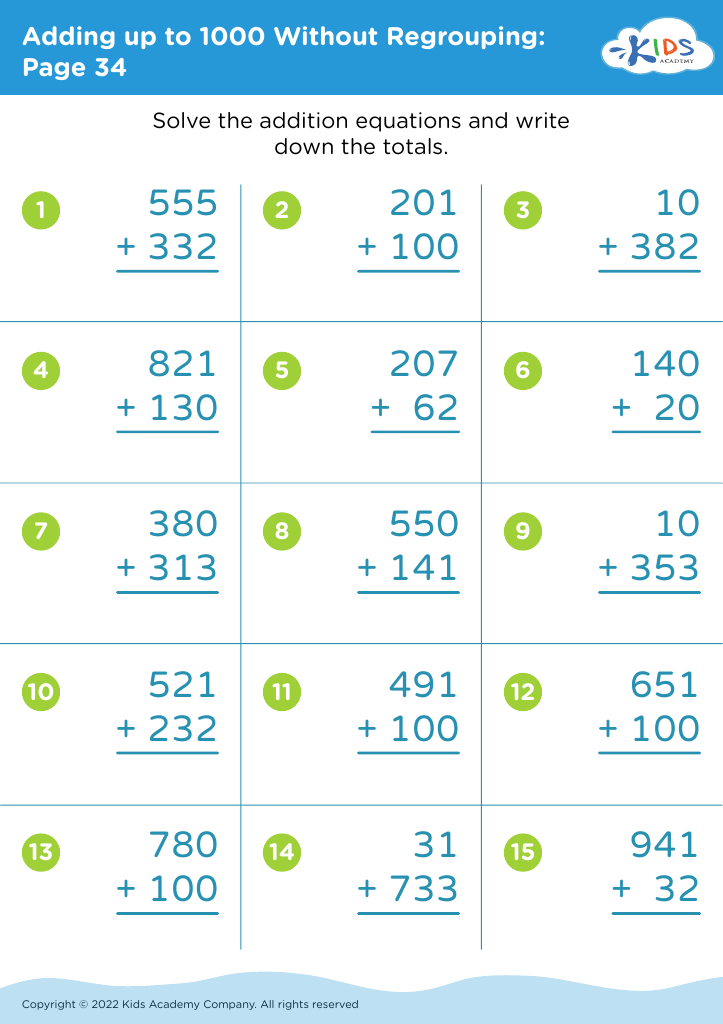Improve problem-solving Addition Worksheets for Ages 6-8
4 filtered results
-
From - To
Unlock your child's potential with our "Improve Problem-Solving Addition Worksheets for Ages 6-8." These engaging and educational worksheets are expertly designed to boost problem-solving skills through fun and challenging addition exercises. Our printable worksheets not only help young learners master basic math facts but also enhance their critical thinking and analytical abilities. Perfect for classroom use or at-home practice, our worksheets foster a love for learning and build a strong math foundation. Equip your child with the tools they need to succeed in math and beyond with Kids Academy's high-quality resources. Let’s make learning an adventure!
Caring about improving problem-solving skills in addition for children ages 6-8 is crucial for both parents and teachers because it lays the foundation for future mathematical proficiency and cognitive development. At this age, children are in a key developmental stage where they are transitioning from concrete to more abstract thinking. Strengthening their problem-solving abilities in math enables them to better understand and engage with more complex mathematical concepts later in life.
Firstly, addition is a fundamental mathematical operation that appears in everyday activities and advanced math. Proficiency in addition fosters confidence, which is essential for a child's overall attitude towards learning mathematics. When children successfully solve addition problems, they build a solid number sense, develop logical thinking, and enhance critical thinking skills, all of which are important for academic success.
Moreover, problem-solving in addition encourages perseverance and patience—a critical aspect of tackling challenges both in academics and real-life situations. By nurturing these abilities early on, children learn not only how to find the right answers but also how to approach problems methodically.
Involving parents in this process creates a supportive learning environment, reinforcing skills learned at school and fostering a positive attitude toward math. Focus on improving addition problem-solving ensures that children build a resilient mathematical foundation and develop key thinking skills essential for lifelong learning.





















